US: Report details Russia's "malign influence" in Serbia
A report that speaks about "Vladimir Putin's asymmetric assault on democracy" has been presented to US senators.
Thursday, 11.01.2018.
13:18
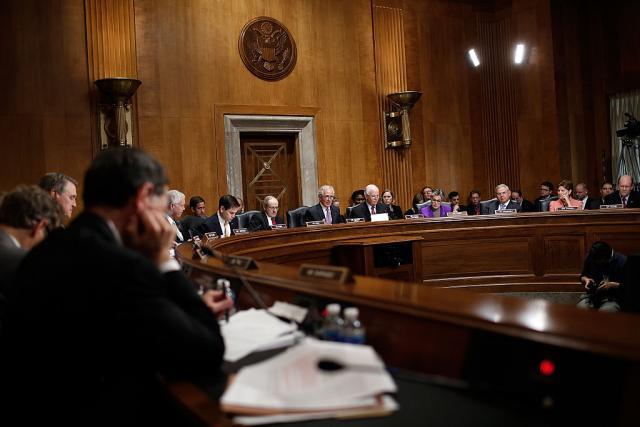
US: Report details Russia's "malign influence" in Serbia
Dubbed "Putin’s asymmetric assault on democracy in Russia and Europe: implications for US national security" - this is a minority staff report prepared for the Committee on Foreign Relations of the US Senate.It speaks about the Russian president's government "engaging for years in a relentless assault to undermine democracy and the rule of law in Europe and the United States."
The full document is available here (a PDF file hosted on foreign.senate.gov)
"Following attacks like Pearl Harbor and 9/11, US presidents have rallied the country and the world to address the challenges facing the nation," the author, US Senator Benjamin Cardin, a Democrat, writes.
"Yet the current president of the United States has barely acknowledged the threat posed by Mr. Putin’s repeated attacks on democratic governments and institutions, let alone exercised the kind of leadership history has shown is necessary to effectively counter this kind of aggression. Never before in American history has so clear a threat to national security been so clearly ignored by a U.S. president," he adds.
The report is divided into a number of chapters, and states that Russia's "malign influence" has been detected in 19 countries.
Thus chapter 5 deals with "Kremlin interference in semi-consolidated democracies and transitional governments" - a list that includes Serbia, Montenegro, Ukraine, Georgia, Bulgaria, and Hungary.
Serbia is also mentioned as "a telling example" in chapter 4 that deals with "the leveraging of energy supplies for influence."
"Serbia provides a telling example of how such a situation might play out. The country is reliant on Russia for its natural gas imports, and its state-owned gas company, Srbijagas, has in recent years accumulated debts of over USD 1 billion, leading Russia to pressure Serbia in 2014 by reducing gas deliveries by 30 percent. Dusan Bajatovic, the director of Srbijagas, is also the deputy chairman of the pro-Russian Socialist Party of Serbia, and serves in parliament, where he is on the Committee on Finance, State Budget, and Control of Public Spending," the document said, and added:
"Russia is reported to have relied on Bajatovic as 'a guarantor of the matters agreed [to] in [the] South Stream project' - a now defunct pipeline project on which Serbia has already lost some USD 30 million. Despite Serbia’s debts and dependency on the Kremlin’s gas supplies, Bajatovic insists that his country still 'benefits from contracts with Russia'."
Next, Serbia is mentioned in chapter 5, where "Russian interference in places like Serbia is less visibly aggressive and focuses more on cultivating sympathetic elements of society to deter government efforts to integrate with the West."
Just over seven pages of the report deal with Serbia, a country where "Russia's malign influence" manifests itself through "cultural ties, propaganda, energy sector, and an expanding military cooperation."
Moscow also "highlights deep roots between the countries through the Orthodox Church and a shared Slavic culture."
"This narrative has been carefully cultivated over the years such that Russian government disinformation campaigns find very fertile ground among the population of Serbia," it is stated, and added:
"Despite its close relationship with Moscow, the government of Serbia has made clear that its top priority is joining the European Union. Serbia’s desire to maintain good relations with both the EU and Russia is reflective of public opinion, but may not be sustainable, as deeper integration may mean adopting EU decisions that run counter to Russian interests."
"Serbian government officials’ differing opinions on EU integration reflect a tension within the broader society itself. In remarks at the Serbian Economic Summit in Belgrade in October 2017, US Deputy Assistant Secretary of State Hoyt Brian Yee said that those countries who wished to join the European Union 'must very clearly demonstrate this desire'," the document said.
"Referring to Serbia’s long-standing relationship with Moscow, he said, 'You cannot sit on two chairs at the same time, especially if they are that far away.' The mixed reaction from the Serbian government to Yee’s remarks reflected the point that Yee was trying to make."
As Serbia's EU bid becomes more serious, the report continues, Belgrade would be "well served to examine the tools used by Russia laid out throughout this report and work closely with the EU to build its defenses."
"The government of the Republic of Serbia has dedicated substantial resources and political capital towards joining the EU. But unfortunately, it has taken little action to defend itself from anti-EU Russian government propaganda that circulates throughout the country with little resistance," Cardin writes.
"According to the U.S. State Department, 'the number of media outlets and NGOs taking pro-Russian stands has grown from a dozen to over a hundred in recent years, and the free content offered by Russian state outlets such as Sput- nik make them the most quoted foreign sources in the Serbian press.' For example, Sputnik articles in recent years have falsely claimed that Kosovar Albanians planned pogroms against Kosovar Serbs with the blessing of the West and that the West is fomenting instability in the Balkans to create a pretext for invasion. This propaganda appears to have had an impact. Since Sputnik was launched in Serbia in January 2015, Russia’s favorability numbers among Serbians have increased from 47.8 percent to 60 percent in June 2017," it is stated.
The report stresses that Serbia has not signed onto "EU's Russia sanctions" - and that "given its relationship with Russia, it is difficult to see Belgrade agreeing to such measures in the foreseeable future."
It also speaks about Serb Republic President Milorad Dodik's good relations with the Russians, and Moscow's publicly expressed support to what is termed "a 2017 independence referendum in the RS" - one which "the Constitutional Court found violated the rights of non-Serbs in the country."
Next, the US senator addresses the situation in the media in Serbia, to state that "press freedom has declined sharply in recent years":
"Freedom House reported in 2017 that +press freedom has eroded under the SNS-led administration of Prime Minister [now President] Vucic. Independent and investigative journalists face frequent harassment, including by government officials and in pro-government media. Physical attacks against journalists take place each year, and death threats and other intimidation targeting media workers are a serious concern.' If Serbia’s journalists are not able to conduct investigations without threat of censorship, violence, or intimidation, the ability of the country to significantly counter Russian propaganda may not be possible. The government of Serbia has an important role to play in fostering an environment where press freedom can thrive."
It also states, "according to the Financial Times, Sputnik provides online stories and news bulletins to 20 radio stations across Serbia free of charge."
The report observes that "while the response from the West has been sparse" - there are signs of competition in the information space":
"The BBC has announced plans to reengage in Serbia in 2018, seven years after it closed its Serbian language service. The service will be funded at around GBP 600,000 annually and will employ 20 local staff."
"Russia is able to engage with the citizens of Serbia through cultural institutions, including the Orthodox Church, civil society associations, and under the guise of humanitarian assistance," the report said, and added:
"A core element of the Russian government narrative on its relationship with Serbia rests on its common heritage in the Orthodox Church. Church leadership in Russia and Serbia amplify traditional conservative messages that frequently carry anti-EU or anti-western tones, often focused on gay rights. These ties between the churches are cultivated by senior political leaders - Russian officials emphasize these ties on visits to Serbia, often making time to meet with Serbian Orthodox Church leaders."
Cardin cites the Center for Euro-Atlantic Studies (CEAS) NGO as documenting "51 pro-Kremlin associations and student organizations active in Serbia" - "among the most influential, according to CEAS, is SNP Nashi, a group modeled on the Russian pro-Kremlin youth organization Nashi."
The Russian-Serbian Humanitarian Center in the southern town of Nis is also mentioned, whose true purpose is regularly doubted by US officials.
Next, the document said that "security cooperation presents Russia with another powerful in road into Serbia’s government and society."
"The narrative that Russia is Serbia’s protector on the world stage has a particular resonance with Serbia’s population. A 2017 public opinion survey by the Belgrade-based Demostat research center found that 41 percent perceive Russia as Serbia’s greatest friend."
The report added that Serbians recognize Russia's support in Moscow' stance toward Kosovo, and also the blocking of a British resolution on Srebrenica at the UN.
"Serbian President Aleksandar Vucic frequently meets with President Putin, and as recently as December 2017 called upon Russia to play a more active role in negotiations on Serbia’s relationship with Kosovo," the document observed.
"The Russian government’s asymmetric arsenal in Serbia is multi- faceted and very effective at maintaining public support for a strong relationship with Moscow. This has been achieved with little counter-messaging efforts on the part of the European Union and the United States. Given Serbia’s central role and influence in the Balkans, any strategy to counter malign influence should start with Belgrade. Since the Russian government could significantly ramp up its malign influence efforts beyond current levels in the event that Serbia made clear strides towards joining the European Union, the international community should prepare for this eventuality by incorporating some of the best lessons learned from other countries across Europe," the report said, before listing "lessons learned."
"Lessons learned"
"- More domestic leadership is needed to defend against Kremlin interference: Serbia is an important country in the region, given its geographical centrality and complicated recent history during the breakup of Yugoslavia. As its leaders navigate a challenging political environment, there is no doubt that Serbia faces pressure in trying to 'sit on two chairs.' But leadership matters, and if Serbia wants to join the EU, it needs to take steps to counter the Russian asymmetric arsenal. Without any significant defense, Russian propaganda will continue to have an impact on public opinion in Serbia.- The United States must reengage with resources: U.S. assistance to Serbia has been on a downward trajectory in recent years. According to the Congressional Research Service, the United States provided USD 22.9 million in FY2014, USD 14.2 million in FY2015, and USD 16.8 million in FY2016. For FY2017, the Obama Administration requested approximately USD 23 million. The FY2018 budget from the Trump Administration requested USD 12.1 million. In light of substantial assistance increases authorized in the 2017 Countering America’s Adversaries Through Sanctions Act, USAID missions across the region must reorient towards a more robust effort to counter Russian malign influence. For years, these missions have been on a glide path to wind down operations with insufficient focus on the threat posed by Russian malign influence. The challenge faced by the United States and its allies across the Balkans and throughout Europe requires a reorientation of assistance. In approaching this reality, the United States must reverse years of thinking about shrinking its footprint, and instead work towards an expansive and entrepreneurial approach that makes long-term investments in building resiliency and strengthening democratic institutions, including their ability to counter disinformation. The United States should also continue to support Serbia’s efforts to become more energy independent, and work with the EU on comprehensive efforts across the region.
- U.S. Officials need to show up: In addition to aid, countries like Serbia also need senior level and consistent U.S. diplomatic engagement. The United States must send a clear message that it is willing to spend the time and effort necessary to support those who want a democratic future in Europe. High-level attention by the United States has been noticeably diminished in the region since the fall of Slobodan Milosevic, more than 17 years ago. Russian engagement with Serbia’s leadership stands in stark contrast to that of the United States. President Vucic has met with President Putin at least twelve times since 2012. The last U.S. President to visit Belgrade was Jimmy Carter in 1980. To fill this void, senior U.S. officials, including members of Congress, should regularly travel to the region and host high profile visitors to Washington. The United States needs to send a clear message that it is back and ready to work seriously in cooperation with host countries and allies across Europe to defend against malign influence and help countries complete the integration process."











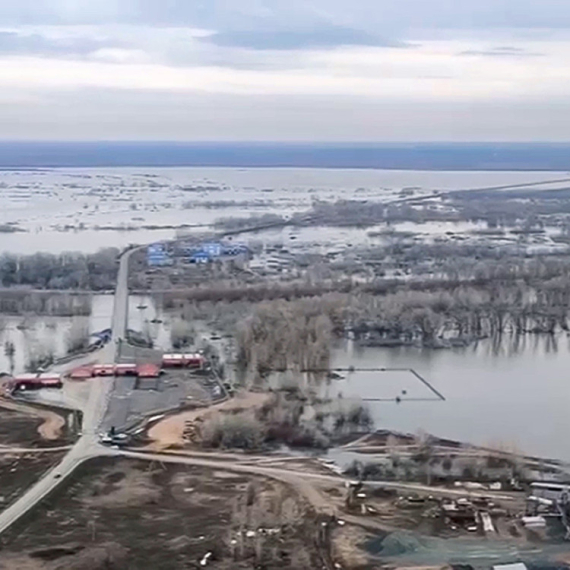


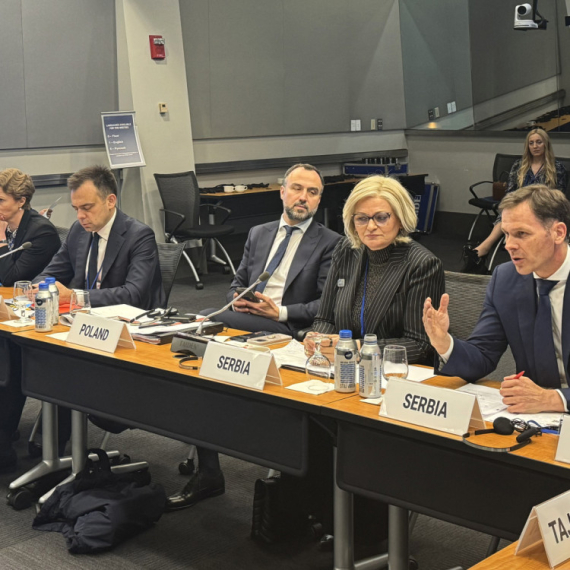










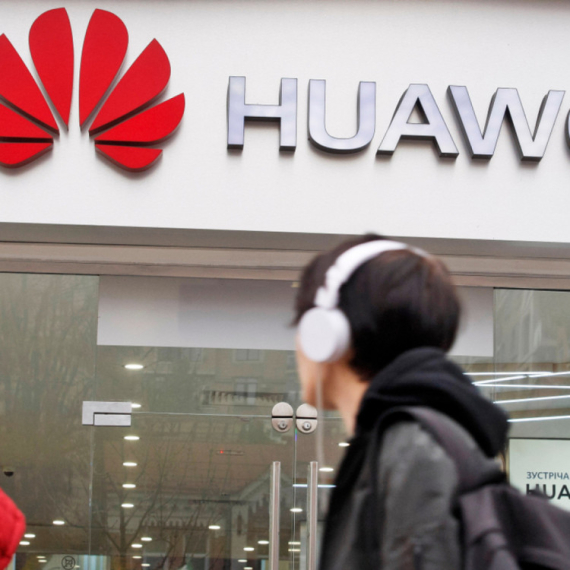












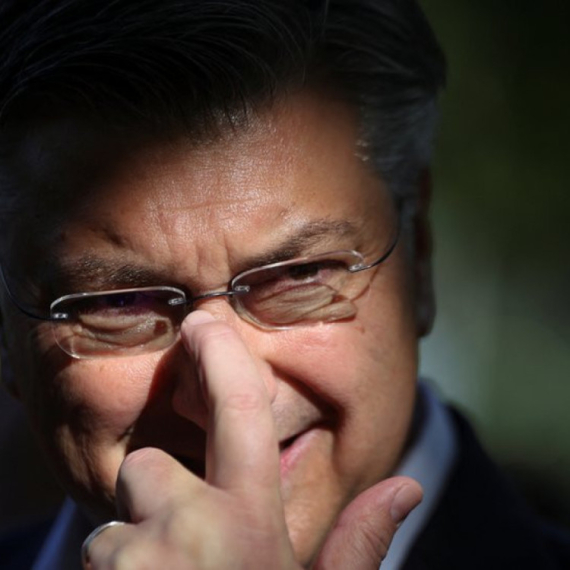

Komentari 40
Pogledaj komentare